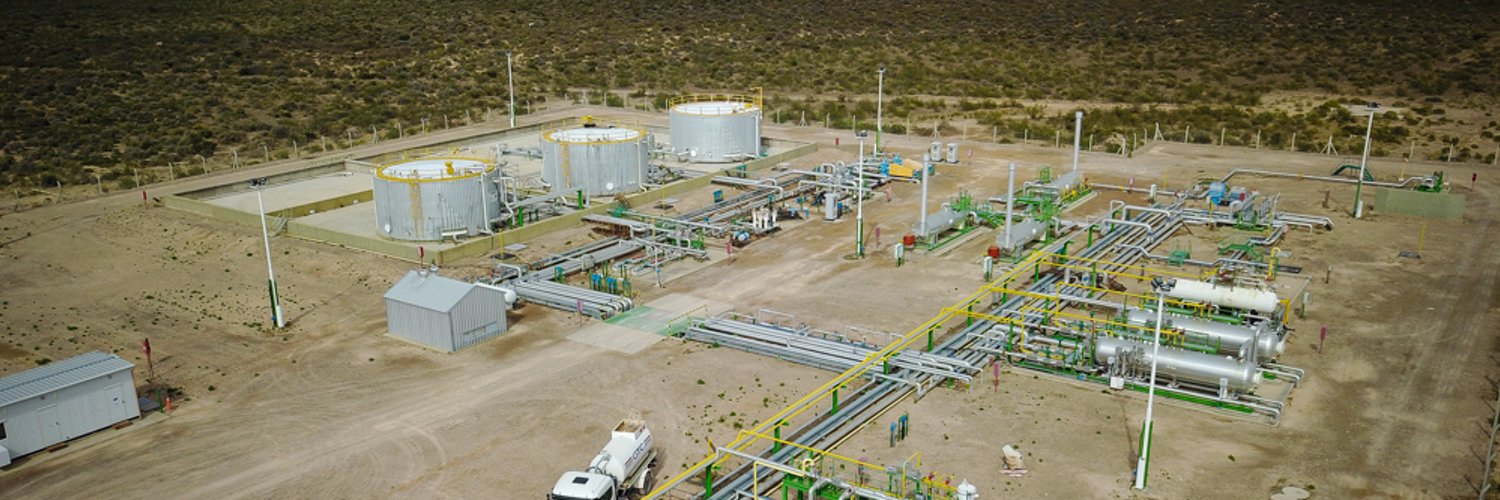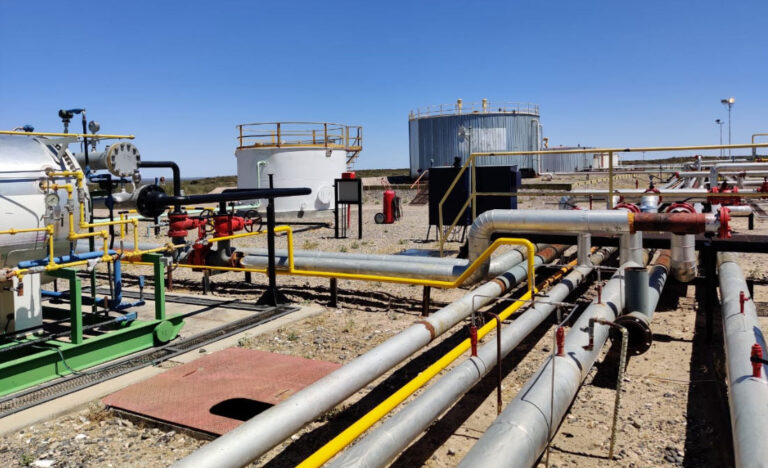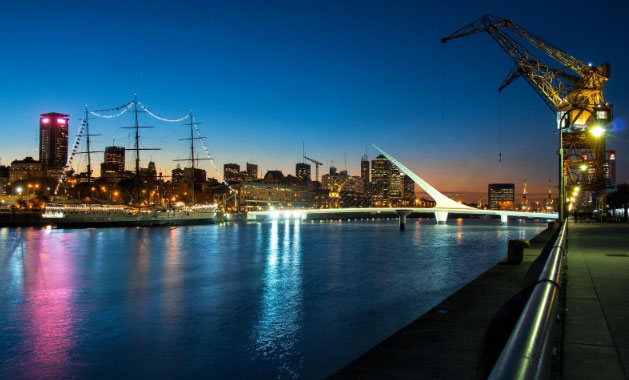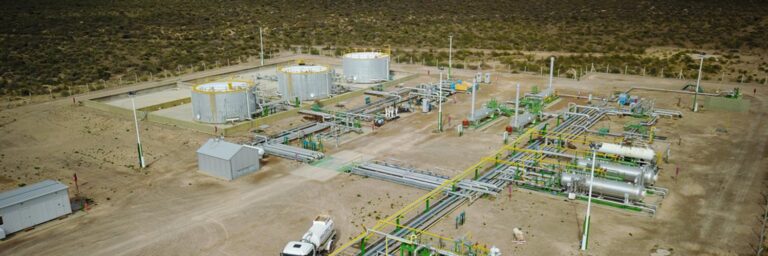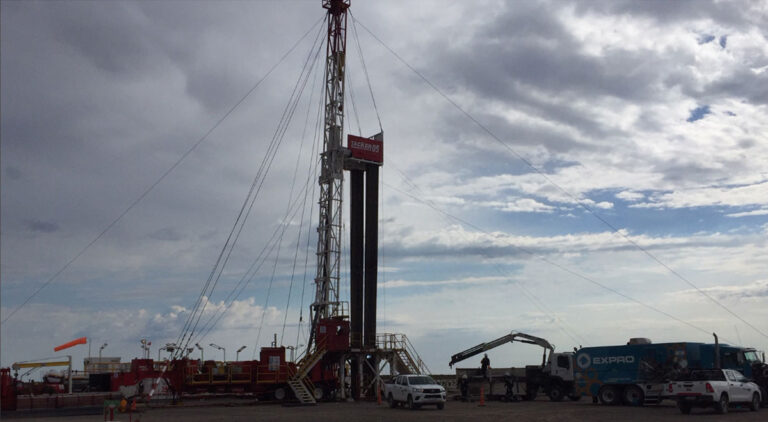President Energy plc (LON:PPC) Chairman and Chief Executive Officer Peter Levine caught up with DirectorsTalk for an exclusive interview to discuss what the company does, the greatest challenges & opportunities for their business and the reasons for the change in share price over the last two years.
Q1: Peter, this is the first time that we’ve spoke on Director’s talk, can you give us a little background on what President Energy does?
A1: The company is an international oil and gas company, we produce in Argentina and America with exploration in Argentina and Paraguay. We’ve got a significant independent audited preserves, 16 million barrels of proven reserves, 26 million of proved and probable reserves and there is a 500 million of exploration resources.
We actually are successful in replacing our reserves and we’ve replaced our reserves by 167% since the end of 2017. Our average production estimation, we estimate for 2020 for the year is 2,850 to 3000 of barrels of oil equivalent, that’s oil and gas, and in 2021, we’re estimating projecting between 3000 to 4,000 barrels of oil equivalent. That’s not a forecast, these are simply management guidance and estimates.
We have material upside in our assets, which we own, we own all our assets, all our fields, all are onshore and all are conventional. We own our pipelines and infrastructure to get into the market, over 120 kilometres of pipeline we own and operate, of which a good part of it we’ve built ourselves.
All our fields are profitable, we have significant strategic investment, besides myself, I own 29.95%, just shy of 30%, and we have Trafigura. Trafigura is one of the leading international commodity traders and logistics companies in the world with $117 billion dollars of turnover, they own 16% of us, they’re our strategic partner and, of course, with their assistance, we are able to secure the end market for our products, something very crucial.
We are manically focused on driving down costs, we’re a low cost producer, we focus on cashflow, margins and decreasing G&A, we don’t have any kind of Head Office in the UK, we work above the shop wherever we are producing. We have a balanced business of gas and oil and we’ve got real class ESG – Environmental, Social, and Governance – management.
Our core production is in Argentina and I invite your audience, if they’re interested to learn more about us, to go onto our website and/or as well go on to our Twitter account.
Now let’s come up front with Argentina. Most people have heard major macro issues, yes, there’s an economic downturn, yes, coronavirus has hit them very hard, ironically, they’re coming out of it now, summer cases are decreasing and people are out on the streets.
From a strategic point of view, our industry is vital to Argentina. First of all, our production is taken up by domestic demand, the government support our industry, it protects our industry against imports, it gives price support, we’re a dollar-based business and we don’t have any material foreign exchange exposure. We get paid by our customers at the exchange rate at the time that our money is paid, not the invoice date, the time our customers pay us, that’s the exchange rate. Obviously, we are very good at treasury management, as you can see from the recent interim accounts.
In the hydrocarbon-rich basement of Neuquen, which is our main area in Argentina, we’ve got five fields, we’ve got pipeline infrastructure, we’ve got facilities, mostly which are computerised. In the last two months, we’ve drilled in times of crisis and safely, we’ve drilled two successful wells, one a production well which is going on stream shortly and another one, which is a discovery world and we’ve made a very promising identification of oil and gas in that well, which we’ll be testing in the next few weeks.
In the North, we operate in Salta, that’s near The Andes, where we’ve got a large field which we need, next year, to be drilling and we also operate a production facility in Louisiana, in America.
As I said, each one of our fields, independently, is profitable.
Finally, in terms of where our assets lie, we’ve got very significant exploration assets in Paraguay and, as we speak, we’re in advanced discussions with a national oil company to farm into that asset with a view to drilling and an exploration in 2021.
So, what are our plans for the future going forward, just telling you a bit about the company?
Next year, it’s more well, looking at farm out in Paraguay, building infrastructure, therefore increasing production, cost-effective production and we’ve got the financial capacity for the right acquisition.
Why? Because crucially, we don’t have any material third party financial debt, we had a deliberate policy at the beginning of this year to reduce debt, we’ve reduced it by some 50% from the start of the year, 60% from the same period last year, and therefore our debt to third parties is minimal.
My private office, my family office, is financial due diligence for the company if it needs it and apart from that, we got financial flex and financial capability to grow.
We’ve looked at renewables, we will do that, if it only makes sense, we’re not going to go at it and I’m going to say to you quite clearly, we’re not ashamed, we’re an oil and gas company. We fulfil a need for markets where we are, we employ people and what we’re particularly proud of is, throughout this crisis, we have not shut a single well, we’ve kept producing, we’ve kept employing all our people, not one person has been laid off, not one person has been furloughed.
We’re well-managed and we ensure that we run our business for the right reasons, not for ego, we run our business for profits, for cashflow and for developing for the future and we’ve got the assets and determination to do it.
Hopefully, that gives you a snapshot.
Q2: What do you see as the greatest challenges to your business?
A2: The greatest challenge is to make sure that we keep our costs down whilst increasing our production. There’s certain things that we can’t affect; we cannot affect the international price, we cannot affect the domestic ore price or the domestic gas price. What we can do is make sure that we plan ahead, we certainly see that for example, next year, we see that there’s going to be a gas deficit in Argentina, we see that prices are going to be quite robust.
So, what we’ve done is we’ve switched our emphasis in developing the growth in hydrocarbons from oil, to gas whilst still trying to increase our oil a bit more but, certainly, some of the emphasis is going to be on gas because we see the gas prices rise.
What we need to do is make sure that we conduct our business in the right way, grow our production, which we can do, keep a cap on our costs, try to reduce our costs, you can always look at making more efficiencies. In terms of risk, we don’t see a risk in our markets, frankly, because Argentina is effectively starting step by step, very, very slowly, teeny baby steps, to get out of this crisis, as I’ve said, in the southern hemisphere we’re coming out of the crisis now. Whilst planes are starting to fly, people on the street, Buenos Ares looks very very lively, people are having coffees and eating, people are traveling so we can see that it’s starting to grow.
But if you’re talking about the risks, ensuring that, whilst we’re growing, we nail down our costs, we procure correctly, we partner with our customers, we partner with our contractors and we manage our business efficiently. Those are the factors which drive our business and effectively, cashflow, cashflow, cashflow, positive cashflow as it is now.
Q3: What do you see as the greatest opportunities in your business? I think you’ve just touched on one but what do you see as the greatest opportunities?
A3: Well, we’ve got opportunities within our portfolio, within our portfolio we’ve already identified Paraguay. We’ve effectively bought a very expensive ticket to the market in Paraguay, we spent $100 million of our money in 2012 to 2014, we identified the petroleum system but we came second i.e. we didn’t actually get a commercial well. We actually, ironically, have now identified the best well, which is the well we didn’t drill, which is the one that we’re looking forward to drilling in 2021. So, there are opportunities there, and there are opportunities in our existing core businesses in Argentina.
In terms of external opportunities, as I said, we’ve got the financial flex because we have driven down on net debt to be able to look at other acquisition opportunities, together with our strategic partner Trafigura, who is, as I said, one of our major off-takers.
So, these are the opportunities that we’re looking at for next year particularly, we see that there’s going to be many more opportunities next year, as perhaps larger companies are driven by the ESG requirements of the larger companies to dispose of some of their, for them, non-core activities.
We will not restrict ourselves simply to Argentina, we’ve got deep experience of oil and gas throughout the world, hydrocarbons and, as I said to you, in terms of renewables, if there’s something comes up, that’s fine but it won’t be simple buying an annuity.
Q4: Finally, around two years ago, your share price was above 10 pence, it’s now sitting at about 1.5 pence. What’s happened in the business in those two years?
A4: What’s happened in the business in the last two years? Whilst that price share price has gone down, President Energy has increased production significantly, we’ve increased our asset base very significantly, we have extended our understanding of our areas, we have extended our management expertise, and the old prices happened effectively and external forces like certain of our shareholders selling down so those are the factors.
If you’re looking at the progress that’s been made in the last two or so years, the net debt that we have now is minimal compared to what we have before, the financial debt is very, very small and therefore our capabilities have significantly increased. If I look at the company two years ago, when our share price 10 pence, and now at 1.5p, it absolutely bears no comparison. We are significantly better in our management, in our extent, in our assets, in our reserves and in our production and in our potential so that’s what’s happened in two years now.
We are looking here for the long-term, we’re in for the long haul, I am and management is as well. If you mind your own business, which we are doing, then the rest will come right, I’ve identified where we’re at and we have great faith in our company, we’ve got great potential and, as I’ve already said, that is evident. If you look at our website, there’s a video on our website showing some of our assets, slightly out of date, but it will give you a taste of where our assets are and also on our Twitter, which we keep up to date regularly.
So, there’s lots of interest going forward, we’ve got lots of interesting things and we’ve got news coming up, of course certainly going to be testing that discovering well, which is very promising at the moment. Nevertheless, we can’t have an eye for the market all the time, we’ve got to explain why share price is where it is but the most important thing for us and management, is mind you our own business and value will come.


